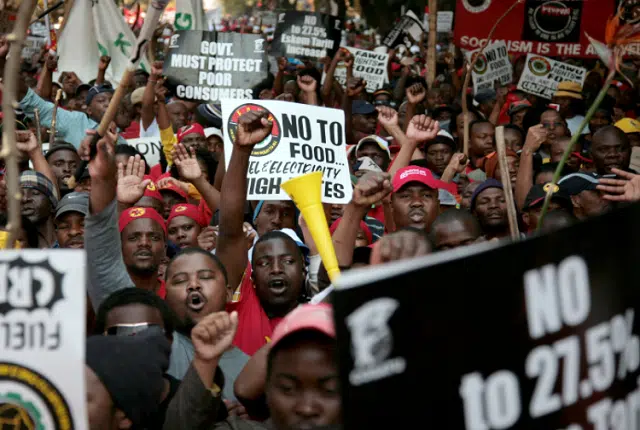
Major headache for public sector wages in South Africa
Civil society unions are set to challenge governments’ incremental wage increases for representatives of public and semi-government institutions.
The South African Parastatal and Tertiary Institutes Union (Saptu) said that the state’s current proposed 2% wage increase should be reconsidered as employees last received an increase in 2019 – and it was only inflation adjusted.
Saptu represents employees working in South Africa’s public service, primarily in semi-state institutions such as Legal Aid South Africa.
The union said that the wage proposals are unreasonable and unfair as cabinet members received a 3% increase and Eskom workers a 7% increase.
“Rising living costs affect every resident of South Africa. Not just certain individuals. Inflation alone currently amounts to 7.4%, and to offer our members only 2% is like a slap in the face,” said Saptu secretary general, Ben van der Walt.
Saptu’s call for higher wages comes amid other heated negotiations happening in South Africa.
Both the Public Servants Association (PSA) and the National Education, Health and Allied Worker’s Union (Nehawu) have been engaged in negotiations and strike action that left many SARS branches closed.
While unions have cooled their demand from double-digits to even below inflation, the government has not shifted from its position, resulting in negotiation deadlock.
Strikes at SARS have been ongoing since May, with economists from Bureau for Economic Research (BER) warning that public sector wage negotiations may potentially see even more increased strike action in the coming months.
On 1 August, Finance Minister Enoch Gondogwana told BusinessDay that he has taken charge of public sector wage negotiations because staff wage bills account for the biggest share of government spending in the country.
The move by Gondongwana for the National Treasury to manage the negotiations has faced backlash, with the Public Servant’s Association spokesperson, Reuben Maleka, telling News24 that unions are concerned that the Treasury’s involvement will curb the proposed public servant’s wage bill.
“It will be a regression to have Treasury taking centre stage in the Public Sector Coordinating Bargaining Council (PSCBC). We have long passed the question of whether the state is bloated or not. The state is not bloated; the state is capacity-crippled – hence it is unable to deliver in all respect its mandate,” said Maleka.
Read: Big changes proposed for visas in South Africa – including plans for highly skilled foreign workers



